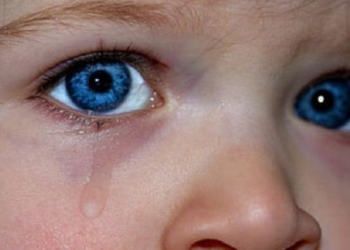There are many motivations behind a person's decision to embrace a religion or other form of spirituality. While those paths have many differences, there's plenty of research that shows people who are religious or spiritual and apply that spirituality to their lives tend to experience several benefits. In addition to enhanced well-being, religious people generally have improved health.
A Link Between Religion and Research?
Maybe you've experienced comfort or relief from a traumatic experience because of your own religious beliefs. A study completed by students from the University of Florida in Gainesville and from Wayne State University found that older adults often turn to prayer rather than to other forms of alternative therapy. A very high percentage of respondents reported using prayer to cope with stress. While spiritual and religious beliefs are based on faith, there are many scientific findings that prove strong links between spirituality and its positive influences on mental and physical health.
A quick look at the benefits of regular prayer show that old and young respondents experienced:
- Better health
- Increased positivity
- Reduced stress
- Improved ability to handle stress
- Alleviation of depression
- Enhanced psychological well-being
While there are some difficulties in pinpointing a scientific definition for spirituality, solid research has been conducted, reported, and peer-reviewed, before finding its way into the publication, Psychological Medicine. Researchers looked at a variety of religious interventions in randomized clinical trials and studied the role of spirituality and related mindfulness in patients experiencing chronic diseases or cancer. What did they find?
One: A Sense of Meaning and a Purpose for Life
Life is full of demands, requiring physical and emotional strength. Some of those demands may require financial or physical sacrifices that are out of the individual's control. The stress related to those demands can take a toll on a person's physical and emotional health. However, by reflecting on a deeper meaning for life or the individual's purpose can bring about some relief. An article from the National Alliance on Mental Illness suggests that spirituality enhances the individual's sense of self and empowerment and leads to a meaningful life philosophy
Two: Increased Feelings of Peace With Self
Many people who have suffered grief because of broken relationships or who have regrets about actions in their past have found that talking with a religious leader brought relief. One study found that three short sessions with a spiritual leader were beneficial to those experiencing mental illness. The study also found that more than half of the visits between patients/parishioners and religious leaders were about practical matters rather than spiritual matters. These practical conversations may have covered topics such as work, family life, health issues, and life choices. Other conversations covered emotional states, physical symptoms, and spiritual or religious matters.
Three: Improved Social Behaviors and Decreased Risk of Depression
One of the major factors that puts a person at risk of depression is isolation. Organized religion and strong spiritual beliefs encourage practitioners to engage on a social level. Volunteer activities and community involvement may reduce the potential for depression, whether those activities are religious or not. However, participation in organized religion increases the opportunities and the motivation to participate in those social activities.
Four: A Belief in Something Better
It is normal for human beings to find themselves in the midst of hardship and to yearn for a time when their lives were happier or easier. Feelings of hopelessness can lead to a loss of motivation or a lack of will to complete daily responsibilities. However, the belief that there's a greater meaning to life or hope for something better to come can provide a sense of connection that helps sufferers feel connected, hopeful, and positive enough to continue moving forward
Five: Physical Improvement in the Immune System
Simple daily activities, such as praying or meditating, boost the immune system. It isn't so much about which religious beliefs the individual holds, so much as the practice of deep prayer or meditation. During those quiet moments, the person's fight-or-flight response decreases and the rest and repair system takes over. This provides the physical immune system a chance to heal, affecting the whole body
Six: Overall Feelings of Better Emotional and Physical Health
In general, the idea that you're in the hands of God or other higher power, as taught by The Way International, provides the motivation for improved self-control. That self-control results in a stronger focus, the decreased likelihood of negative thinking, and improved memory. This, in turn, leads to lower blood pressure levels, increased blood flow to the brain, and improved cognitive abilities. When presented in a positive and supportive way, the practice of religion and a strong sense of spirituality can lead to improved mental health and enhance recovery from physical conditions.
There are measurable and long-lasting benefits to being involved with a religious community or practice of spirituality. The involvement encourages positive behaviors and provides a deeper sense of purpose. It provides a buffer against life's trials and personal stress. A dedication to something “higher or greater” than self leads to improved feelings of well-being and reduced feelings of fear for the future. Whatever your personal belief system, you may find that increased spirituality can lead to meaningful benefits.













![Everything You Ever Wanted to Know About 9/11 Conspiracy Theory in Under 5 Minutes [VIDEO] | by James Corbett](https://consciouslifenews.com/wp-content/uploads/2018/09/911-a-conspiracy-theory-120x86.jpg)
